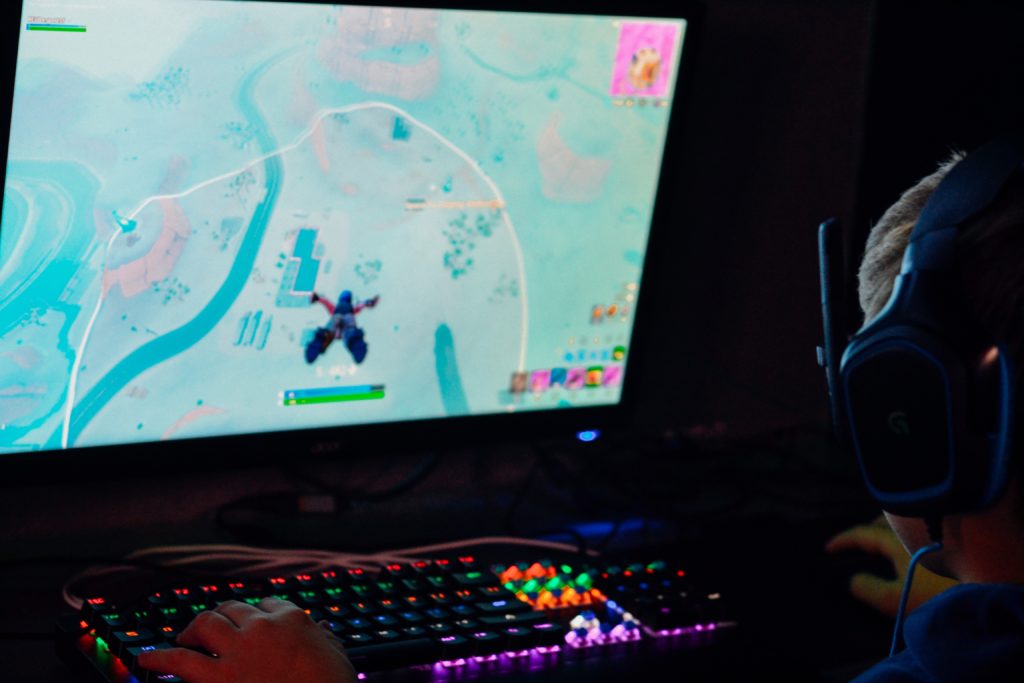Fortnite World Cup: The Good, The Bad, The Ugly
Last week, Kyle Giersdorf AKA Bugha won a record-breaking $3 million in the Fortnite World Cup.
Imagine being 16 years old, and in the blink of an eye you’re the most talked about teenager in the world – oh and you’re also a multi-millionaire.
It wasn’t without its issues, as Kyle’s parents have stated they tried to take his games away from him because he was playing too much. Sounds like a familiar story, right?
Now, how many kids out there are going to be telling their parents that they want to become the next Fortnite world champion? How many are going to use it as an excuse to justify their excessive gaming?
Esports undoubtedly has its positives, and at Game Quitters we’re not against it at all. However, there is definitely an ugly side to the sport.
Fortnite World Cup Recap:
The Good
As the global eSports market breaks through the $1 billion revenue mark, it’s clear that there’s a huge amount of support for the industry. Up by 27% from last year, there’s no doubt that it’s a market on the rise.
With this increase in popularity comes a range of benefits for gamers all around the world:
- Gaming is a viable career option. Whether you want to become a competitive player, a commentator, a coach, or even work behind the scenes on marketing or lighting. There are loads of opportunities for you out there.
- Traditional sports have always been an option for people who want to go to college, and now gamers can join in too. Esports scholarships are becoming widespread throughout universities all over the world.
- More awareness will lead to more support for people pursuing this kind of lifestyle. A greater emphasis will be put on the health and wellbeing of the players, and we can eventually move away from the idea that you have to spend 16 hours a day playing video games to become the best. Regardless of the mental and physical health problems that this lifestyle might entail.
Esports is the perfect setting to spread these messages that you can do whatever you want in your life and achieve your dreams while maintaining a healthy lifestyle and most importantly – have a backup plan.

The Bad
Without a doubt, the number one concern that has popped up since the Fortnite World Cup has been about excessive gaming.
Young people are already spending way too much time on Fortnite, and now – in their eyes – they have a reason to play even more.
Fortunately, Bugha was one of the few people able to balance gaming and school. He managed to achieve good grades while still becoming the best Fortnite player in the world.
But, for the majority of kids, something like that is impossible. It certainly was for me back in school.
We’re starting to hear stories of young people playing for over 12 hours a day, seven days a week, and choosing to neglect their real-world responsibilities. Some even have to go as far as deleting their Fortnite account permanently.
This is where the bad side of the Fortnite World Cup comes into play.
More children are using this $3 million prize as a justification for their excessive gaming habits. Which wouldn’t be a problem if you were guaranteed to earn millions.
However, the chance of becoming an eSports pro is much lower than any other ‘traditional’ sport. Not only that, but the average age of the players in the Fortnite World Cup was 14. This might seem shockingly low, but when you consider the age of retirement in competitive gaming is 22, it makes much more sense.
Odds of making it pro:
⚾️ 0.6%
???? 0.08%
???? 0.03%
⚽️ 0.04%
???? 0.0005%https://t.co/9IUUDsQ0EC— Cam Adair (@camerondare) December 15, 2018
The Ugly
This is where we move away from the individual players, and instead look towards the industry.
Epic Games, the creators of Fortnite, have made over $4 billion from the game already. Therefore, it makes sense that they can offer $30 million dollars for the biggest eSports tournament of all time.
However, they also stated that they don’t do any research on the potential harms of the games. Epic are happy to promote their game to millions of people around the world and hold huge events, but they can’t spare any resources to help the minority that truly struggles with gaming.
It’s been stated time and time again that the industry should take more responsibility for the well-being of their players. It would be a drop in a bucket for these companies to invest in research and provide helpful services to those in need.
There’s a vast array of data that would be invaluable for professionals to provide better treatment for gaming addiction, but the industry remains silent.
Some countries have even stated that the classification of gaming disorder by the WHO will put a dent in their gaming profits.
When industries start putting their shareholder’s pockets above the health of their players, that’s when you know there’s a problem.
